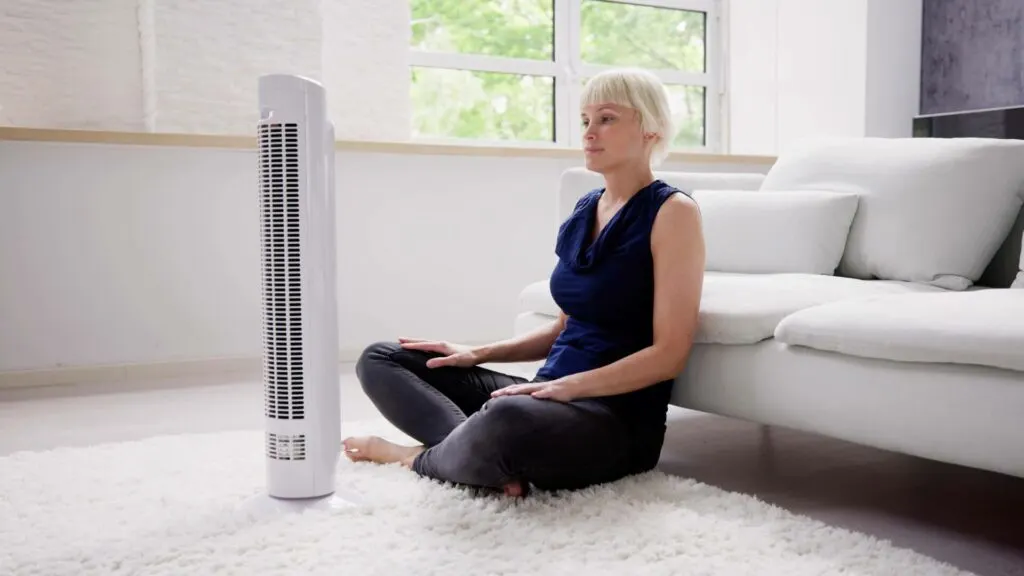Keeping your home comfortable throughout the year relies heavily on your heating and cooling systems. From staying warm during chilly winters to keeping cool in scorching summers, these systems are essential. However, ensuring they work efficiently requires some attention and care. Here are six essential tips for homeowners to maintain and optimize their home heating and cooling systems.

1. Programmable Thermostats for Energy Efficiency
Investing in a programmable thermostat can significantly improve energy efficiency in your home. With a programmable thermostat, you can set temperatures to adjust automatically throughout the day, to generate heat optimizing energy usage when you’re away or asleep. This not only saves money on utility bills but also reduces unnecessary wear and tear on your heating and cooling systems.
2. Regular Maintenance Saves Money and Headaches
Regular maintenance of your heating and cooling systems is crucial. Schedule professional inspections at least once a year to ensure everything is in working order. This proactive approach can catch potential issues early, saving you from costly repairs down the line. Additionally, changing air filters regularly, typically every 1-3 months, improves air quality and keeps your system running efficiently.
- Professional inspections can detect issues like leaks, blockages, or worn-out components before they escalate into major problems, saving you from expensive repairs.
- Clean coils and ducts during maintenance visits improve airflow and system efficiency, reducing energy consumption and prolonging the lifespan of your HVAC system.
- Regular maintenance also ensures that your system operates safely, minimizing the risk of carbon monoxide leaks or electrical hazards that could endanger your family’s health and safety.
3. Seal and Insulate for Maximum Efficiency
Poor insulation and air leaks can cause your heating and cooling systems to work harder than necessary. Inspect doors, windows, and ductwork for any gaps or cracks, and seal them accordingly. Adding insulation to attics, basements, and crawl spaces can also prevent heat loss in the winter and keep your home cooler in the summer, reducing the workload on your HVAC system.
- Use weatherstripping around doors and windows to prevent drafts, and consider upgrading to energy-efficient windows and doors for long-term savings on heating and cooling costs.
- Insulate hot water pipes to reduce heat loss and ensure that hot water reaches faucets and showers more quickly, saving both energy and water.
- Proper insulation and sealing not only improve energy efficiency but also enhance comfort by maintaining consistent temperatures throughout your home, eliminating cold spots and drafts.
4. Keep Outdoor Units Clean and Clear
If you have an outdoor HVAC unit, it’s essential to keep it clean and free of debris. Regularly remove leaves, dirt, and other debris from around the unit to ensure proper airflow. Trim any vegetation or bushes around the unit to maintain adequate clearance. Restricted airflow can cause your system to overheat and lead to malfunctions or breakdowns.
5. Optimize Airflow Inside Your Home
Ensuring proper airflow inside your home is essential for maintaining a comfortable environment. Keep vents and registers clear of obstructions such as furniture, rugs, or curtains. This allows air to circulate freely and prevents uneven heating or cooling. Additionally, consider using fans to help distribute air more effectively, especially in rooms that tend to be warmer or cooler than others.
- Use ceiling fans strategically to complement your HVAC system, circulating air more effectively and reducing the workload on your heating and cooling equipment.
- Keep interior doors open to promote airflow between rooms, balancing temperatures and preventing pressure imbalances that can strain your HVAC system.
- Consider investing in a duct cleaning service every few years to remove accumulated dust, debris, and allergens, improving indoor air quality and system efficiency.

6. Know When to Upgrade
Finally, know when it’s time to upgrade your heating and cooling systems. If your current system is outdated, inefficient, or constantly in need of repairs, it may be more cost-effective in the long run to invest in a new, energy-efficient model. Modern systems not only provide better performance but also come with advanced features that can further enhance comfort and savings.
Your home heating and cooling systems play a crucial role in keeping your living space comfortable year-round. By following these six essential tips, you can ensure that your systems run efficiently, saving you money and preventing potential headaches. Remember to schedule regular maintenance, invest in programmable thermostats, seal and insulate your home, keep outdoor units clean, optimize airflow, and know when it’s time to upgrade. With proper care and attention, you can enjoy reliable comfort in your home for years to come.

Jessi is the creative mind behind The Coffee Mom, a popular blog that combines parenting advice, travel tips, and a love for all things Disney. As a trusted Disney influencer and passionate storyteller, Jessi’s authentic insights and relatable content resonate with readers worldwide.
